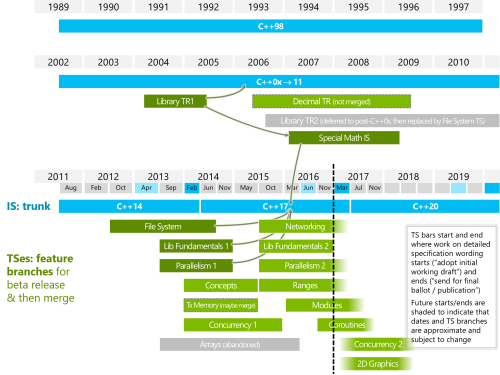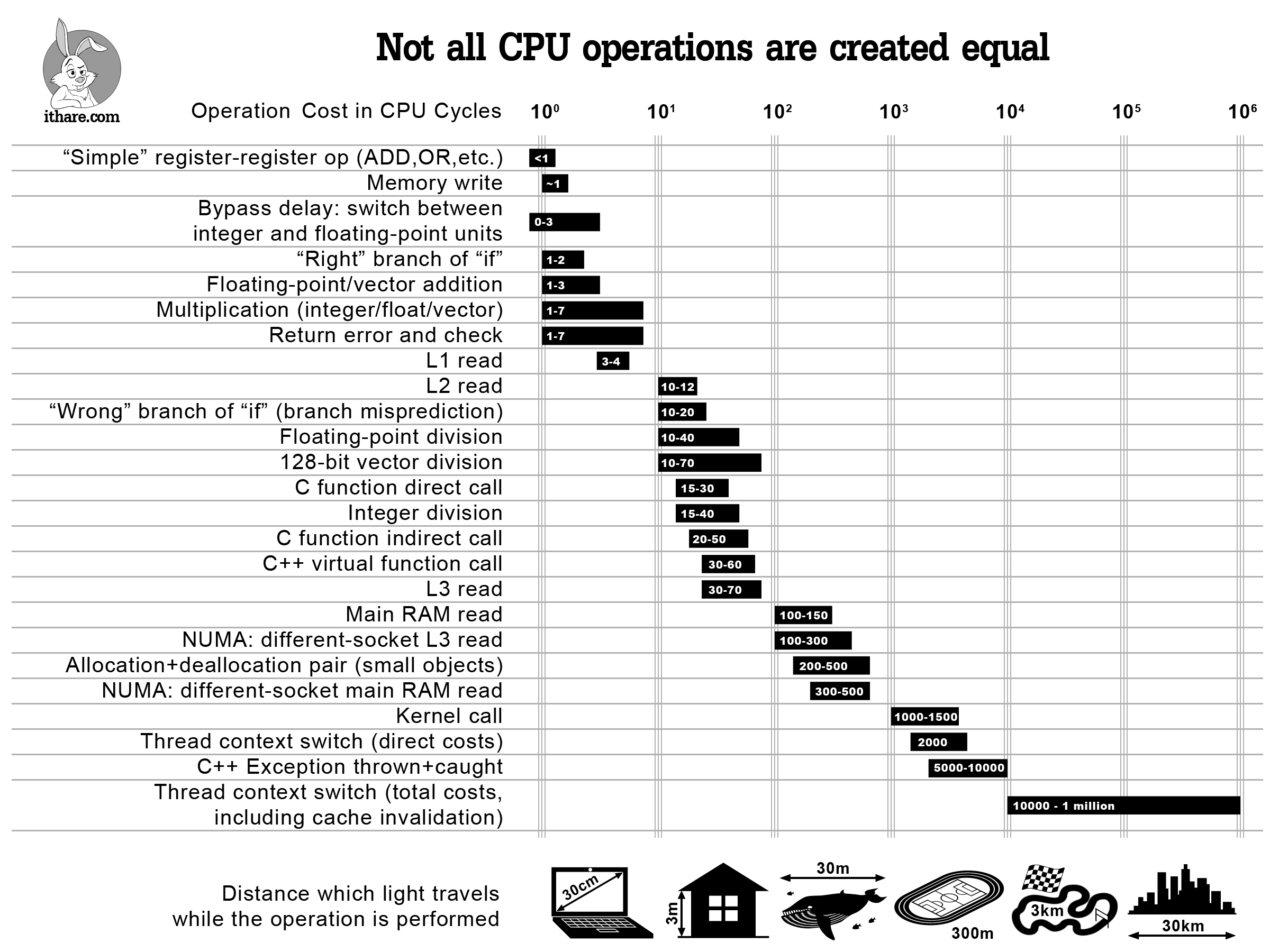Give Visual C++ a Switch to Standard Conformance--Andrew Pardoe
The Visual C++ Team is excited to announce that the compiler in Visual Studio 2017 RC will feature a mode much closer to ISO C++ standards conformance than any time in its history:
Give Visual C++ a Switch to Standard Conformance
by Andrew Pardoe
From the article:
The Visual C++ Team is previewing a compiler mode whereby longstanding non-conforming C++ constructs are rejected. This includes fixes to pre-C++11 non-conformance bugs that affect a significant amount of existing code...



 A very interesting article about the cost of our basic operations.
A very interesting article about the cost of our basic operations.